Zambia
Vice president Kamala Harris will arrive in Lusaka, Zambia on Friday for the final stop of her weeklong trip across Africa.
She is expected to see the new airport that’s doubled in size.
Rather than a symbol of promising local development, it’s a reminder of China’s deep influence there. Beijing financed the project, one of many that has expanded its footprint on a booming continent that's rich in natural resources.
The global rivalry between the United States and China has been a recurring backdrop for Harris’ journey, and nowhere has that been more apparent than Zambia and her previous stop in Tanzania.
Besides the airport, China built a 60,000-seat stadium in Lusaka, plus roads and bridges around the country. Zambia is on the hook for all of the development with billions of dollars in debt. Tanzania is a major trading partner with China.
The developments have alarmed Washington, and President Joe Biden’s administration is worried that Africa is slipping further into Beijing’s sphere of influence.
Harris has played down the issue on her trip, preferring to focus on building partnerships independent of geopolitical competition. However, she acknowledged there’s limited time for the U.S. to make inroads on the continent.
“I do think there’s a window, and we have made a concerted, intentional effort to demonstrate our commitment and our willingness to invest in a relationship,” she told reporters earlier in the trip. “I do believe the window is definitely open now, and I do believe that based on what we do now, the window will continue to be open. But it will be a function of the investments that we make starting now to create the momentum that is necessary for this approach to endure.”
China’s roots in both Tanzania and Zambia run deep. In the 1970s, Beijing built the Tazara Railway from landlocked Zambia to Tanzania’s Dar es Salaam port, allowing copper exports to circumvent white-minority-ruled Rhodesia and apartheid, South Africa.
Today, China is Africa’s largest two-way trading partner with $254 billion of business in 2021, according to the United States Institute of Peace. That’s four times the amount of trade between the U.S. and Africa. In addition, dealing with Beijing features less admonishments about democracy than with Washington.
“Most African countries are rightly unapologetic about their close ties to China,” Nigeria’s vice president, Yemi Osinbajo, tweeted on Thursday. “China shows up where and when the West will not and or are reluctant.”
Sen. Chris Coons, a Delaware Democrat who has worked on Africa issues in Congress, expressed frustration over China’s growing influence here.
“We switched from being the No. 1 trade partner or the No. 1 investment partner in two dozen countries to China being the No. 1 trade and investment partner,” he told reporters aboard Air Force 2 on the flight to Ghana at the beginning of Harris’ trip. “I think our challenge for this decade is to address that.”
Biden has been taking steps toward that, such as hosting a summit for African leaders in December, where he announced that he wants to commit $55 billion to the continent in the coming years.
Harris has made announcements as well during her trip, including more than $1 billion in public and private money for economic development, $100 million for security assistance in West Africa and $500 million to facilitate trade with Tanzania.
However, there’s skepticism about whether the U.S. will follow through on its promises, and Harris has been faced with not-so-subtle hints that Africa expects more.
For example, the presidents of Ghana and Tanzania bluntly said they hope Biden chooses to visit their countries during his expected trip to Africa later this year, which would be his first to the continent as president.
Edem Selormey, who conducts public opinion research at the Ghana Center for Democratic Development, said the feeling is often mutual.
“China’s influence in Africa is largely seen as positive,” she said. “And the U.S. trails China in that regard.”
The difference, she said, is often about “what citizens see on the ground,” such as infrastructure projects, and “the U.S. has been missing from this picture for a while.”
John Kirby, a White House national security spokesman, said the debt that comes from China’s involvement is ultimately corrosive. He said African leaders are “beginning to realize that China is not really their friend.”
“China’s interests in the region are purely selfish, as opposed to the United States,” he said.
It’s a sentiment that draws scoffs in some corners of Africa.
“America is like playing the role of a big Uncle Sam in trying to defend African countries against what they think is the encroachment of China into the liberty of African countries through these loans,” said Tanzania-based analyst Mohamed Issa Hemed.
However, he added, “China is ahead of the U.S. in many, many ways."
Daniel Russel, a former State Department official who is now at the Asia Society Policy Institute, summed up the African perspective as “enough with the lectures” about China. “They’ve got something we want. And they’ve got it right here.”
When it comes to U.S. hopes for Africa, he said, ”you can’t beat something with nothing.”



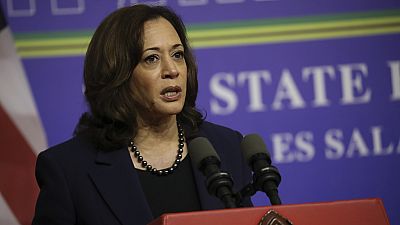

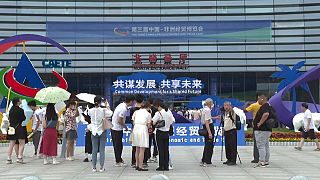
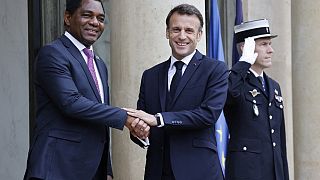
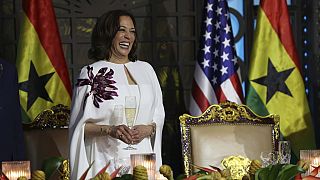
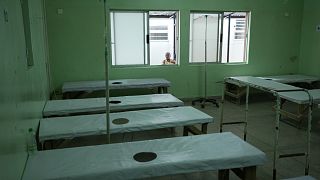
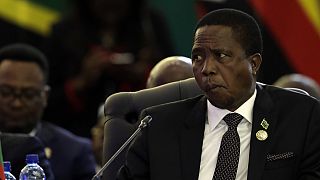
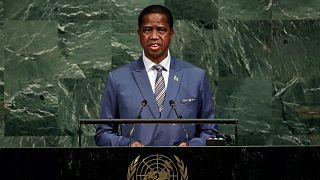
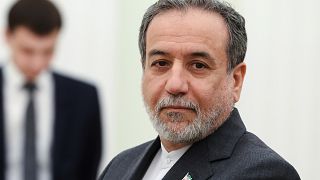


01:00
Pix of the Day: July 10, 2025
02:19
Morocco sees surge in Chinese tourists
01:55
US contractors say colleagues fired live ammunition at Palestinians seeking food
01:12
US President Trump announces surprise summit with five African Nations
02:07
Anxiety grips Haitian community in United States over termination of protected status
01:16
Sean 'Diddy' Combs found guilty on two counts, escapes prison for life